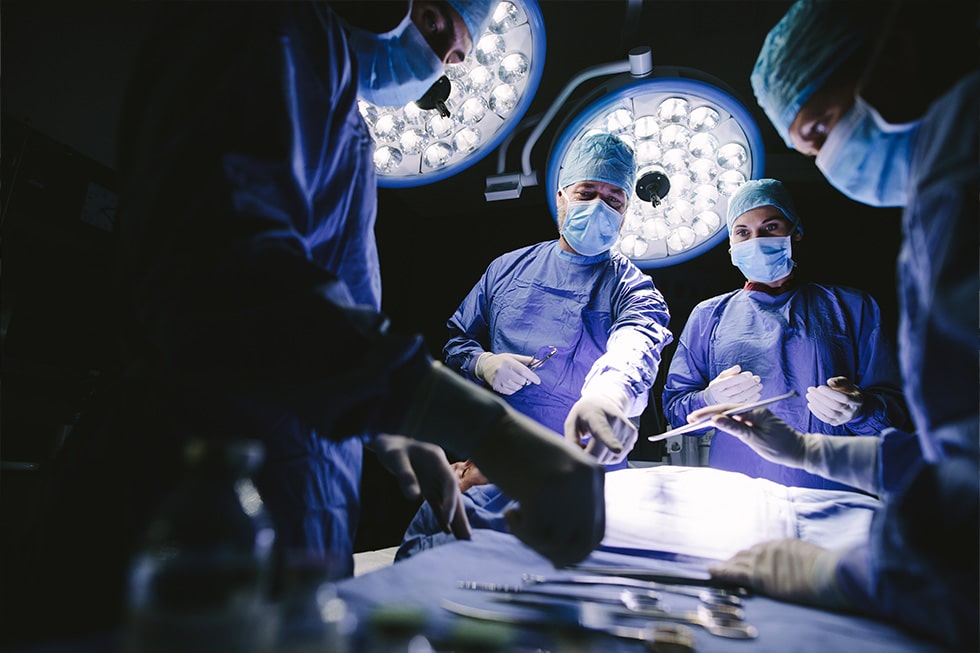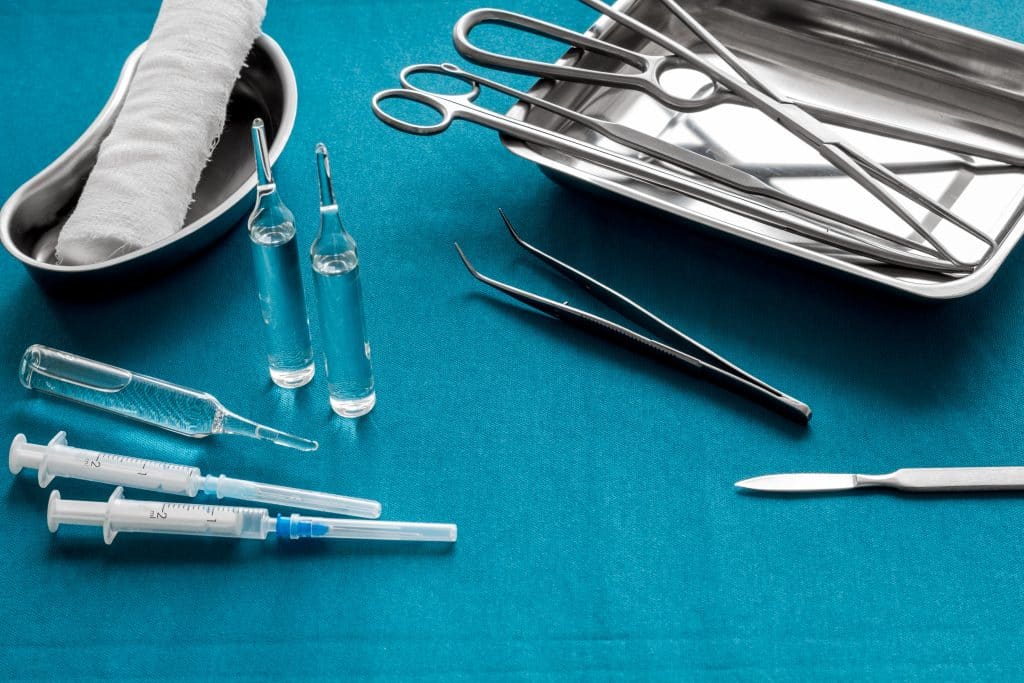
Surgeons have a level of skill and knowledge that can make them seem like superheroes, particularly to patients and their families. But they are human and subject to fatigue, just like the rest of us, especially in long or complex procedures.
One area where preventing fatigue is especially important is the grasping and holding of surgical tools. The last thing anyone wants is for a surgeon to drop an instrument and jeopardize the outcome of the procedure.
Seeking a Best-of-Both-Worlds Solution
The weight and shape of a surgical instrument are important factors in its performance since they affect the surgeon’s ability to hold it for extended periods. Another is how well it is shielded from corrosion, erosion, abrasion, and contact fatigue as it goes through multiple use-cleaning-sanitizing cycles.
Failing to protect instruments from those forces is costly in many ways, from higher replacement and repair expenses to reputational damage from using unsightly, stained tools.
For one ME-92 Operations client, the answer to the first part of the challenge was to manufacture instruments that had historically been made from stainless steel out of aluminum instead. Stainless steel is a hard material that is resistant to damage from corrosion, abrasion, heat, and other forces. Its durability has made it a favorite of medical instrument designers, manufacturers, and users alike. However, it is not a lightweight metal. In addition, despite the “stainless” in the name, it actually can be stained.
Aluminum, on the other hand, is much lighter than stainless steel, with about one-third of its density. So, an instrument made from it would be much easier to hold for an extended period. Unfortunately, it is also a relatively soft metal that is not very damage-resistant. Consequently, aluminum instruments would not last long in many surgery scenarios. Very quickly, they would develop scratches, pits, and other signs of damage, not to mention the dulling of any sharp edges.
Unrivaled Protection for Aluminum Instruments
When the Product Design Team came to ME-92 Operations for help, it was clear that they needed a unique solution. Having always been responsive to market needs, the coatings leader was ready to meet this one, as well. Its experts went to work developing a material that could provide maximum protection to instruments that were lightweight and had ergonomic designs that made them easy to grasp and hold during procedures.
The result was ALCOAT®. This advanced chromium coating is fully biocompatible, inert, non-magnetic, USP Class VI, Tripartite/ISO, and antimicrobial. Not only does it provide instruments with unrivaled protection from damage, but it also supports proper functional performance and enhances their aesthetic appearance.
Applied using a proprietary electrolytic plating, low-temperature (160° F) process, ALCOAT® bonds directly to the base material without altering it and provides absolute adherence. It will not chip, flake, or peel—a critical feature for medical instruments. ALCOAT® is also highly ductile and will not separate from the base material even when twisted, flexed, or impacted.

Active Collaboration Delivers a Long List of Benefits
The term “collaboration” is sometimes used to describe two organizations simply working together. In the project that was the genesis of ALCOAT®, the interaction went much deeper than that. The two parties worked closely to find the optimal solution for the surgeons who would be using the new instruments.
Not only are the tools lightweight and shaped to make them easy to hold and use, but their protective ALCOAT® coating provides many added benefits, including that it:
- Produces a hard, scratch-resistant, nonstick surface that is easy to clean
- Prevents corrosion from sterilization and laser marking
- Helps the instruments maintain a like-new appearance
- Increases wear resistance
- Helps maintain sharp cutting edges
- Prevents galling, fretting, and spalling
- Arrests metallic debris and particulate matter
- Provides smooth-sliding surfaces
- Reduces high-intensity light reflection/refraction and glare
- Makes the instruments hydrophobic and chemical resistant
In the end, everyone involved with the project was thrilled with the results.
A Trusted Partner for Future Projects
There is another benefit that goes beyond product or coating characteristics. This successful collaboration means that the client now has a coatings company it trusts and can turn to as new needs arise.
Surgery is a field that continues to evolve. From new techniques to new technologies, surgeons are continually looking for ways to produce even better outcomes for their patients.
Establishing a connection with an innovative and supportive partner gives the client confidence that they have access both to the best coating products available and to the expertise needed to ensure that their instruments—current and future—will always deliver exceptional performance.